Grandpa went to the hospital to check out the phenomenon of cerebral infarction, what are the early symptoms of cerebral infarction?
summarize
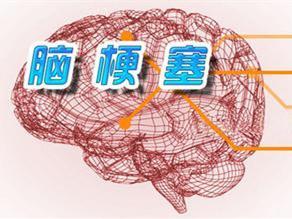
Infarction of the brain (Infarction of the brain) cerebral infarction is due to cerebral artery atherosclerosis, endothelial damage to the cerebral artery lumen narrowing, and then due to a variety of factors so that local thrombosis, so that the artery stenosis aggravated or completely occluded, resulting in ischemia of the brain tissue, hypoxia, necrosis, resulting in neurological dysfunction of a cerebrovascular disease.
The onset of cerebral infarction is basically sudden, and most of the time it occurs when you are resting quietly. Even if the onset of cerebral infarction is sudden, it can be detected by careful observation of one's condition in daily life. Cerebral infarction patients will have some pre-symptoms before the onset of the disease.
Characteristics of cerebral infarction
1. There may be a history of antecedent transient ischemic attacks, such as irregular episodes of self-resolving vertigo, and limb movement disorders.
2, quiet when the onset of more patients, patients often in the morning after waking up to find that the inability to speak, crooked mouth or hands and feet can not move and other symptoms.
3. Symptoms worsen over a few hours or over a longer period of time, with progressive deterioration.
4. Consciousness is mostly maintained, while hemiparesis and aphasia are more severe.
5. The age of onset is mostly seen in middle and old age.
6. History of atherosclerosis.
7, "three high" people that is, high blood pressure, high blood lipids, high blood sugar is a high-risk group to produce the disease.
Pre-symptoms of cerebral infarction
1. Symptoms of sensory disorders manifested by numbness The patient only showed hand numbness, without partial numbness, and hand numbness was the main precursor symptom of this phase. The presence of hand numbness increased the likelihood of ischemic stroke in this phase by 14.364 times.
2. Physical symptoms manifested by body fatness and bloat are characterized by physical obesity. Fat and bloatedness (obesity) increases the likelihood of ischemic stroke by 10.414 times in this phase of life.
3、Gastrointestinal symptoms manifested by bad breath, which means that the patient often has bad breath, indicating that the patient's gastrointestinal tract has a depressed heat, which is caused by upstroke in the mouth. The presence of halitosis increases the incidence of ischemic stroke by 9.829 times in this phase.
4. Symptoms of balance disorders manifested by vertigo Patients may experience persistent vertigo or dizziness. The presence of persistent vertigo increases the likelihood of ischemic stroke in this phase by 7.398 times; the presence of dizziness increases the likelihood of ischemic stroke in this phase by 5.795 times.
5、Sleep symptoms manifested by drowsiness after eating The patient's drowsiness after eating indicates that the elevation of the body's qi is out of order and the gods are disturbed. The appearance of sleepiness after eating increases the occurrence of ischemic stroke by 5.036 times in this phase. 6. Facial symptoms Normal color. The patient's face color was only normal without darkness, indicating that the patient was at the acute onset of ischemic stroke for more than 7d, which was different from the red face at the acute onset of ischemic stroke and the darkness of the face at the early stage of the onset of ischemic stroke. The presence of a normal complexion increased the likelihood of ischemic stroke occurring during this phase by a factor of 6.218.
7、Ocular symptoms manifested by dryness of the eyes The patient's dryness of the eyes is caused by deficiency of yin and fluid and loss of nourishment of the eyes. Combined with the patient's symptoms of dizziness and vertigo, it shows that the liver yin is deficient, causing the eyes to lose nourishment and become dry. The presence of dryness in the eyes increases the likelihood of ischemic stroke by 6.679 times at this time.
8, to impatient as the manifestation of emotional symptoms manifested in the patient is often impatient, impatient can make the liver qi stagnation, stagnation of qi, so that the body's qi operation is not smooth, the qi reversal of upward interference in the brain. The presence of symptoms of impatience increases the likelihood of ischemic stroke by 2.343 times at this time.
How is lacunar cerebral infarction diagnosed?
1. Most of them develop above the age of 50 and often have a history of long-term hypertension, arteriosclerosis, and heart disease.
2. Slow onset, with symptoms peaking in hours or days.
3. Clinical symptoms are mild, mostly without headache, vomiting and impaired consciousness.
4. Neurologic signs are more limited and simple, such as pure motor hemiparesis, pure sensory stroke, ataxic diplegia, na eating hand clumsiness syndrome.
5. No abnormalities in auxiliary tests such as electroencephalogram, cerebrospinal fluid and cerebral angiography.
6. CT can confirm the diagnosis. There is often a low-density area of 3 to 10 millimeters, and CT cannot show lesions smaller than 2 millimeters.
How to prevent
1、Preventing late nights
The occurrence of cerebral infarcts can be triggered by poor rest, as these can cause fluctuations in blood pressure or changes in the dynamics of the blood, which can make it very easy for a person to develop cerebral infarcts.
2、Preventing emotional outbursts and depression
When people are very honorable intentionally angry or depressed, it will trigger the occurrence of cerebral infarction, because easy to anger or long time worry, anxiety, it is possible to make the vascular nerve regulation function become abnormal, or make the cerebral blood vessel constriction, which triggers the appearance of cerebral infarction.
3、Prevent excessive lowering of blood pressure
When you lower the blood pressure excessively, it will trigger the occurrence of cerebral infarction, so you must eat the correct antihypertensive drugs, and at the same time in the medication should continue to regularly measure blood pressure, and adjust the dose to eat, do not casually add or subtract the dose to eat.
4、Don't drink and smoke
People do not want to be addicted to alcohol and smoking and alcoholism, especially when a large number of drinking hard liquor, the blood vessels can be said to be harmless. Cigarettes contain more than three thousand kinds of harmful substances, smoke nicotine inhalation of the human body, can stimulate the vegetative nerve, so that vascular spasm, heartbeat accelerated, blood pressure, blood cholesterol increased, thus accelerating atherosclerosis.
5. Proper exercise
Appropriate exercise can increase fat consumption, increase circulatory function, adjust blood lipids and lower blood pressure, reduce blood clots are beneficial, is the prevention and treatment of cerebral infarction (cerebral infarction, cerebral embolism, cerebral cavernous infarction) of positive measures. Cerebral infarction patients should be selected according to the individual's physical condition, and should carry out appropriate and moderate physical exercise and physical activities to the extent that they do not feel fatigue. It is not suitable to do strenuous exercise, such as fast running, mountain climbing, etc. Jogging, walking, soft gymnastics, playing tai chi and other aerobic exercise can be carried out.
6. Weight control Maintain or reduce weight so that BMI is maintained at 18.5-24.9 kg/m2 and waist circumference <90 cm.
7. Reasonable diet
① Cereals are the mainstay; eat more potassium-rich foods such as peaches, oranges, bananas, spinach, hairy peas, sweet potatoes, potatoes, etc., which can lower blood pressure and prevent strokes;
② Supplementary calcium: calcium deficiency can promote small artery spasm, blood pressure, daily intake of more than 1 gram of calcium, can reduce blood pressure; magnesium and calcium have a similar role, you should eat more coarse grains, nuts, seaweeds and other magnesium-rich foods; eat more fish, poultry, eggs, lean meat, eat less fat, meat skin. Light less salt, less sugar meals, reduce the amount of salt to about 6 grams per day.
③ Reduce blood viscosity food: garlic, onion, tomato, celery, kelp, seaweed, black fungus, silver fungus, peach kernel, hawthorn, strawberry, lemon, salmon and so on, on the reduction of blood viscosity, to reduce the blood in the blood of abnormal clots have a better prevention and treatment effect.
④ Adequate drinking water: at the same time to ensure adequate water intake, insufficient water will increase the viscosity of the blood in the body, the hoarding of waste is difficult to discharge, the normal daily intake of water should be 2000-2500 milliliters.
8, remember to sleep immediately after meals
Avoid sleeping immediately after meals, because after meals, blood gathered in the stomach and intestines to help digestive organs of the blood supply, while the brain blood supply is relatively reduced, at the same time, after eating a meal to sleep, blood pressure drops, can make the brain blood supply is further reduced, the blood flow is slow and easy to form blood clots. Therefore, it is best to sleep half an hour after meals.
Prognosis of cerebral infarction
The mortality rate of cerebral infarction is lower than that of cerebral hemorrhage, and the prognosis is generally better than that of cerebral hemorrhage, but the prognosis of cerebral infarction with severe condition is not good. The prognosis of cerebral infarction is related to the following factors.
1、Related to the size of the blocked blood vessel If the blocked blood vessel is small, the scope of cerebral ischemia is small, and the collateral circulation is easy to be formed, the recovery is faster and the prognosis is better. If the obstructed blood vessel is large, the scope of cerebral ischemia is large, the brain tissue is severely damaged, the clinical symptoms are slow to recover, and the prognosis is poor.
2、Related to the speed of the onset of slow and gradual onset of the disease, it is easier to form collateral circulation, cerebral ischemia can be gradually compensated, the prognosis is better. Those with acute onset of disease fail to establish collateral circulation and have a poorer prognosis.
3、Related to the number and quantity of infarcts The first attack, the prognosis is better. However, the prognosis is worse for a large infarction. The prognosis is worse for infarcts occurring more than twice, especially when both sides of the cerebral vessels are involved. The more infarcts, the worse the prognosis. A single infarct has a better prognosis.
4. Related to the nature of the embolus If the embolus is loose, in the process of running with the blood, it breaks itself, flows to the distal end of the blood flow, and blocks the small blood vessels, the prognosis is better. And fat embolus, air embolus, bacterial embolus, than cardiogenic embolus prognosis is serious. However, the prognosis is worse for those who have a brain abscess caused by an embolus of cardiac origin.
5. Relating to the severity of focal localization symptoms The prognosis is better if the localization symptoms such as hemiplegic aphasia after the onset of hemiplegia are mild. On the contrary, those with more severe hemiplegic aphasia have a poorer prognosis.
6, related to the degree of coma, coma degree is serious, the longer the duration, the worse the prognosis. If there is no coma at the onset of the disease, but the patient enters coma later and the degree of coma gradually increases, the prognosis is worse. If the patient is always conscious, the prognosis is better.
7, with or without comorbidities such as decubitus ulcers, lung infections, urinary tract infections, diabetes mellitus, coronary artery disease, arrhythmia, heart failure, etc., the prognosis is poorer, and without comorbidities, the prognosis is better.
8, related to the age of the patient Age, poor physical condition, poor prognosis. Small age, good physical condition, good prognosis.
Winter is the season of high incidence of cerebral infarction, into the neurology department of major hospitals, winter is the season of the largest number of hospitalized people. My classmate is a neurologist, and he thinks winter is the most tiring.
Typical symptoms of cerebral infarction, such as half-body weakness, numbness, slurred speech and other abnormalities, are known to belong to the symptoms of cerebral infarction, and the patient will be sent to the doctor as soon as possible. However, do you know some small hidden symptoms? In fact, the symptoms of cerebral infarction are many and varied, especially the small foci of cerebral ischemia and cavernous cerebral infarction which are not taken seriously, and their pre-symptoms may be mild or similar to the normal state, so it is very easy to muddle through. Clinical findings show that about 75% of patients with cerebral infarction have only mild symptoms at the initial stage, and their abnormal manifestations include, in addition to the above, dizziness, headache, memory loss, forgetfulness, insomnia, emotional ups and downs, mental retardation, numbness of hands and feet, neck stiffness, and transient loss of consciousness, etc. For those who suffer from hypertension, high blood pressure, high fatigue, and high blood pressure, they may be easily fooled. For those who suffer from hypertension, hyperlipidemia, diabetes, the elderly must pay special attention to, even if just love to sleep such a "small situation", but also to raise vigilance, if necessary, timely hospital medical care.
Because some patients with small foci of cerebral infarction seizure in the beginning stage of the disease only appear to love to sleep, memory loss, dizziness, headache, fine movements are not as sensitive as before and other minor symptoms that are not easy to be noticed, the condition is very hidden, and it is easy to be ignored by the patients themselves and their families. Because of this, the patient loses the best time for treatment, which ultimately leads to the aggravation of the condition. The symptoms of typical cerebral infarction such as unfavorable movement of one side of the limbs, poor speech and distorted eyes and mouth will appear. At the stage of functional defects, it is more difficult to treat, and many patients will be left with sequelae of cerebral infarction. Therefore, for the majority of elderly people, especially hypertension, hyperlipidemia, diabetes mellitus patients, even the appearance of minor abnormal manifestations, should not be careless, should be timely medical treatment, to avoid the occurrence of major adverse events.
For more health information, please follow Dr. Zhang Zhiying's headline number
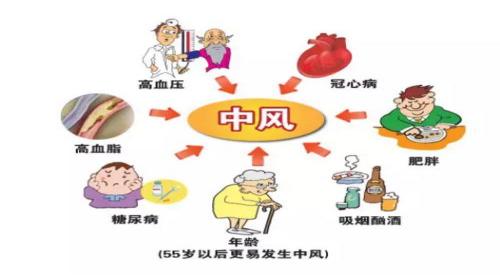 Have you ever heard of mini-strokes? Stroke, a cerebrovascular accident, consists of two main categories: cerebral hemorrhage and cerebral infarction. The mortality and disability rates are extremely high among all diseases.Although stroke comes rapidly, but before the onset of the disease, there is a pathological evolutionary process, in which there is a cerebral circulation is mildly dysfunctional, but can be restored to the stage, clinically manifested in a variety of precursor symptoms, often minutes to days before the occurrence of stroke, that is, a small stroke.A mini-stroke is a warning to patients that is often ignored by many!
Have you ever heard of mini-strokes? Stroke, a cerebrovascular accident, consists of two main categories: cerebral hemorrhage and cerebral infarction. The mortality and disability rates are extremely high among all diseases.Although stroke comes rapidly, but before the onset of the disease, there is a pathological evolutionary process, in which there is a cerebral circulation is mildly dysfunctional, but can be restored to the stage, clinically manifested in a variety of precursor symptoms, often minutes to days before the occurrence of stroke, that is, a small stroke.A mini-stroke is a warning to patients that is often ignored by many!
Only by paying attention to small strokes can you avoid more damage to the organism!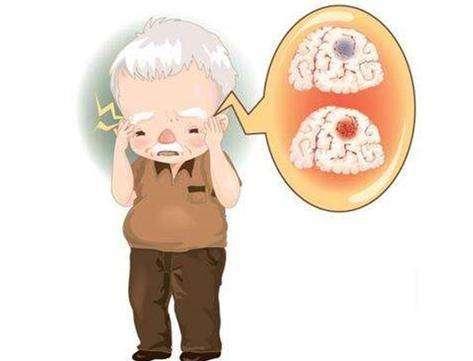
mini-stroke
:: A mini-stroke is medically called a transient ischemic attack. The symptoms of a mini-stroke appear very briefly, and the patient often returns to normal immediately, so many people do not think that this is in fact the manifestation of a mini-stroke.A mini-stroke can be viewed as a precursor to a stroke, and the chances of a future stroke are many times higher than in the general population.
The symptoms are as follows:
1. DizzinessThe precursor of stroke in middle-aged and old people is recurrent momentary dizziness. Middle-aged and elderly people will have recurrent momentary vertigo as a precursor to stroke, and they will suddenly realize that they are dizzy and their vision is spinning, and then return to normal after a few seconds, which may be a transient ischemic attack, and they should be diagnosed and treated as soon as possible in order to prevent the occurrence of a stroke.
2. Numbness of the limbs.. Middle-aged and elderly people appear numbness of the limbs of the abnormal sensation, in addition to cervical spondylosis, diabetes, such as accompanied by headache, vertigo, light-headedness, tongue swelling and other symptoms, or have high blood pressure, hypertension, diabetes or cerebral arteriosclerosis and other diseases history, should pay more attention to be vigilant about the occurrence of stroke, the onset of sudden onset or unilateral weakness of the limbs, unsteadiness, and then attacked after a quick relief to beware.
3,Transient appearance of dark haze, i.e., one eye has blurred vision or is unable to see.It peaks within seconds and returns to normal after a few minutes.This is the most common symptom of stroke aura in middle-aged and elderly people, which is caused by retinal ischemia due to cerebral ischemia.
4. Unexplained falls.Due to cerebral vascular sclerosis, causing cerebral ischemia, motor nerve failure, can produce ataxia and balance disorders, and easy to fall, is also a kind of stroke precursor symptoms.
5. Suddenly, you can't speak well or you can't speak clearly, or even you can't speak at all.However, short duration, up to 24 hours, should be taken seriously, as well as unexplained crooked corners of the mouth, or tongue extension deviation should be noted.
6. Yawn constantly.If there is no fatigue, lack of sleep and other reasons for continuous yawning, this may be due to cerebral arteriosclerosis, ischemia, causing chronic ischemia and hypoxia in brain tissues, which is a precursor of stroke patients.
The above symptoms should be taken seriously, sometimes it is a one-off and can be improved soon, this is a signal to remind you that you should consult a doctor, do not not take it seriously. If possible, you should go to the relevant departments of the hospital, conduct the appropriate tests to make a diagnosis, and take the appropriate measures to prevent the problem before it occurs.
Stroke Symptoms
Stroke patients may experience stiffness and numbness in facial expressions and visual disturbances; weakness in the hands and feet, numbness in the limbs, and difficulty in walking; and slurred speech and inability to make sense of words.Time is of the essence, and if any of these symptoms occur, call 120 emergency immediately to get the best possible treatment.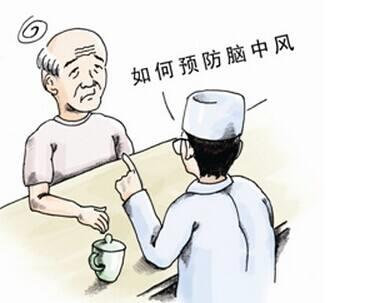
Preventing Stroke
Stroke and mini-stroke are both cerebrovascular conditions, so reducing vascular risk factors is critical to preventing mini-strokes from progressing to stroke. The recommendations are as follows:
1. Smoking cessation and weight control
2. Control of blood sugar, blood pressure and blood lipids
3,Improve diet (low salt, less oil, less sugar), proper exercise, and proper medication.
4. Control of underlying diseases such as atrial fibrillation
Atrial fibrillation is one of the highest risk factors for stroke, the If you have had atrial fibrillation in the past, it is important to consult with your physician at the cardiology department in a timely manner. Many patients with atrial fibrillation can effectively reduce the likelihood of mini-strokes and strokes with standardized treatments such as prevention of platelet aggregation and anticoagulation.
5. Regulate yourself
Small stroke patients should avoid overwork, tension, panic, anger and other emotional changes, the organism in the emotional fluctuations of the situation is most likely to occur stroke. After the occurrence of a small stroke, it is necessary to have sufficient rest and learn to self-regulate emotions, which is very beneficial to the prevention of stroke.
In the end, you must remember a few things:
1. A mini-stroke should be viewed as an early warning of a stroke!
2. Although it can fully recover in a short period of time, it must not be left unattended!
3, be sure to go to the hospital for examination and timely preventive measures. Only in this way can we avoid being hurt more!
I am a nutritionally savvy internist and a former dietitian for Air Force pilots. For more sharing, stay tuned. Thanks!
Ms. Sun, 72 years old, suffered from cerebral infarction more than 10 years ago. After emergency rescue, her life was not in danger, but in the later stages of rehabilitation, she did not have a positive mindset towards rehabilitation due to her procrastinating personality and dependence on others. After being discharged from the hospital, he did not actively carry out rehabilitation training according to the doctor's requirements, and now he has been in a paraplegic state and cannot take care of himself.
Cerebral infarction is defined as ischemic necrosis or softening of limited brain tissue caused by impaired blood supply to the brain, ischemia, and hypoxia. Common types of cerebral infarction include: cerebral thrombosis, lacunar cerebral infarction, and cerebral embolism, with cerebral infarction accounting for more than 50% of all strokes.
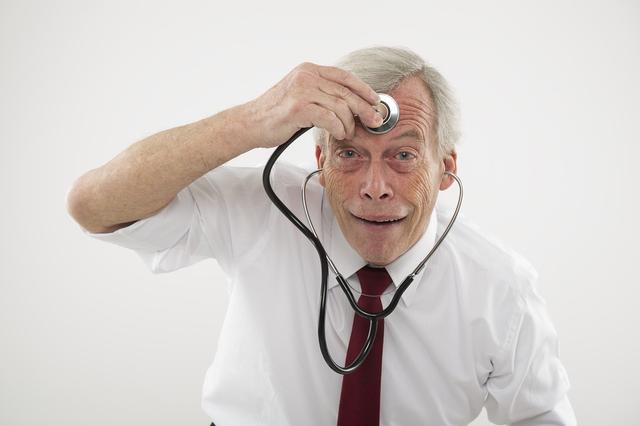
The incidence of cerebral infarction accounts for about 75% of the whole cerebrovascular diseases, and its rapid onset and short rescue time make it a disease with high disability and mortality rates.
For the early symptoms of cerebral infarction, they can be summarized as 120.
1: See if the patient has a crooked mouth and eyes
For many patients with cerebral infarction, before the onset of cerebral infarction, there will be a feeling of numbness on one side of the limbs, and the movement of the limbs will be restricted, and even the symptoms of numbness of the face, tongue and lips will appear, and the most obvious symptom will be the crooked mouth and salivation, which is the cause of the insufficient supply of blood to the lateral arteries.
2: Check to see if the patient can lift both arms without difficulty
You can check whether the patient can easily lift both arms flat, if one arm is weak or cannot be lifted flat, you should be alert to cerebral infarction. If the gait of the elderly suddenly changed, and accompanied by numbness and weakness of the limbs may also be a precursor to cerebral infarction, especially patients with high blood pressure, and if vertigo occurs many times a day, you must consult a doctor in a timely manner.

0: Listening
Listen to the patient's speech to see if there is any slurring of words. Before the onset of cerebral infarction, many patients will experience numbness of the tongue, which is usually caused by the occlusion of the anterior cerebral artery, causing numbness in the tongue area and the face of the patient. If the blockage is more serious, the patient will be accompanied by a series of symptoms such as speech impediment.
In addition, if unexplained headache occurs, it may be due to some obstacles to the blood supply to the brain, thus causing ischemia and hypoxia in brain tissues. In the early stage of cerebral infarction, the symptoms of headache are usually mild, and only a vague feeling of dullness or swelling will occur. If the headache is severe and unbearable, it may be a large cerebral infarction.
If the patient suffers from unexplained vision loss, accompanied by blurred visual field and blurred vision, it may also be due to compression of the optic nerve at the site of the cerebral infarction, resulting in the deterioration of visual function!
How can we prevent brain attacks?
1. Reasonable diet
For the high-risk group of cerebral infarction, it is recommended to have a low-salt, low-sugar and low-fat diet, with staple food mainly consisting of grains and cereals, increased intake of coarse grains, supplemented by fresh seasonal vegetables and fruits, and increased intake of vegetables and fruits with high dietary fiber, such as leeks and celery, and so on. And the need for appropriate supplementation of high-quality protein, such as: fish, etc.; appropriate intake of some nuts, etc., balanced diet.

2. Take your medication on time
High blood pressure, high blood sugar and high blood fat are important risk factors for cerebral infarction, which will lead to the attack of cerebral infarction if they are not well controlled. Taking medicines on time every day and controlling blood pressure, blood sugar and blood fat within the normal range. It can largely reduce the attack or recurrence of cerebral infarction.
3. Keep a good mood
For people who are at high risk of having a brain attack, or who have already had a brain attack, it is important to keep a calm mind and have confidence that you will get well, in order to help your condition recover. Of course, for family members, try not to give them too much pressure or stimulation, is also an important means of preventing cerebral infarction.
4.keep moving
Exercise is very important for patients with cerebral infarction, which can promote the improvement of cardiopulmonary function, improve the blood circulation of the whole body, and bring more sufficient blood and oxygen to the brain. For patients who have already had a brain infarction, exercise should not be too strenuous, and half an hour a day is enough.
I am Pharmacist Wang, dedicated to helping you manage your body by explaining complex and difficult disease knowledge in plain words. Your praise is my greatest motivation! In addition, if your family members also have related troubles, please forward this article to them!
The incidence of cerebral infarction is increasing, and there are currently 13 million stroke patients in China, a number that is still growing.
Because cerebral infarction often leaves a lot of sequelae, which will bring trouble to the patient himself and even the whole family. Therefore, it is undoubtedly a great thing if early detection of cerebral infarction can reduce the sequelae of cerebral infarction!
Most of the cerebral infarction attack, there will be a certain performance: walking skewed, dizziness, or headache, standing unsteadily, numbness and weakness of the limbs; or suddenly fall, paraplegia, or a part of the limbs or inability to move, or power decline; sudden blurred vision, or suddenly black in front of the eyes; or suddenly can't speak, feel that the tongue is not under their own control, spit out the word is not clear, or the corners of the mouth salivation, the mouth and eyes crooked, and other symptoms. etc.
But in general, if these symptoms are already present, it means that the blood vessels may be blocked, which is highly likely to lead to after-effects.
It's natural then for someone to ask if there are ways to detect problems earlier, and there are!
That's a healthy lifestyle and the right approach to risk factors that can prevent and minimize brain attacks.
Quit smoking, quit drinking, stick to aerobic exercise, reduce salt, oil and sugar diet, control weight, regular work and rest, etc. Healthy lifestyle.
If you have hypertension, diabetes, or hyperlipidemia, it must be strictly controlled.
Last picture.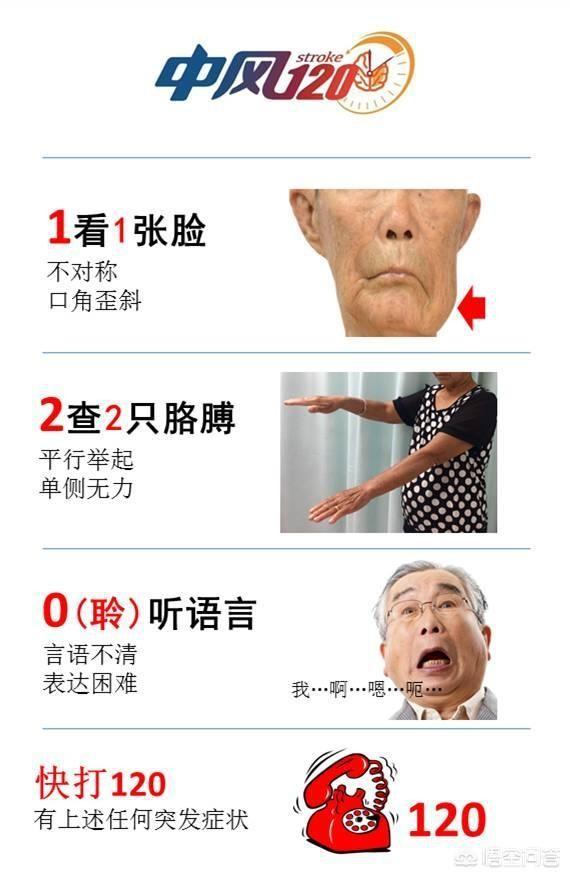
Easy to read!
The precursors to a brain attack are:
1. Sudden onset of vertigo
2. Sudden onset of severe headache
3. Paralyzed limbs, unfavorable speech, crooked tongue, slurred speech, hard and numb tongue
4. Sleepiness and drowsiness, as evidenced by yawns
5. Unstable walking, one side of the body usually feels numbness, weakness, inability to move flexibly, dropping of hand-held objects, crooked mouth, drooling.
6. Frequent recurrent nosebleeds.
According to the phenomenon of mild cerebral infarction, it is estimated that it is what doctors call "lacunar cerebral infarction", lacunar cerebral infarction, in general, has no special symptoms, and most of them are due to the patient's high blood pressure, diabetes mellitus and so on, and go to the hospital for routine physical examination and discovery.
A "lacunar cerebral infarction" may cause mild dizziness, numbness in the hands and feet, and headache, but these symptoms are not typical and are not necessarily related to cerebral infarction, and may be a manifestation of high blood pressure, diabetes, or other diseases themselves.
With "lacunar cerebral infarction", it means that your blood vessels have been hardened and tiny blood vessel blockage has occurred, so you must pay attention to it and strengthen the preventive measures, otherwise, once aggravated, it is very likely to have more serious large-scale cerebral infarction, which affects the function of the nervous system, and even hemiparesis, aphasia, and inability to take care of oneself.
For the treatment of "lacunar cerebral infarction", it is necessary to seriously treat the primary disease, actively control hypertension, diabetes, hyperlipidemia, etc. If it belongs to the high-risk group, it is necessary to take long-term oral aspirin, statin drugs, to prevent thrombosis and stabilize the role of plaque.
For patients with high blood pressure, cerebral infarction is not far away, we must know that high blood pressure once the long-term persistence, it is easy to lead to the formation of atherosclerosis, when the patient's blood vessels will gradually become thicker and harder resulting in blood vessel stenosis and blockage, and the pressure within the blood vessels is too high, but also may cause damage to the lining of the accelerated plaque thrombosis, impeding the normal flow of blood, so do not doubt that high blood pressure does lead to the cerebral infarction. Therefore, do not doubt that high blood pressure does lead to cerebral infarction, and it is also a relatively common and frequent high-risk factor.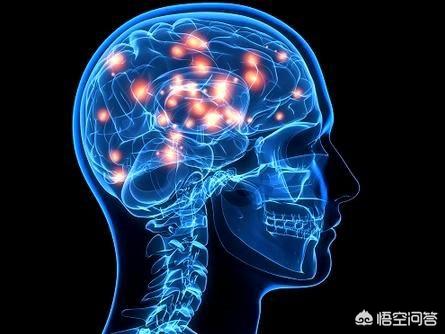
Now that the diagnosis has been made, it is important to keep in mind what to do in the event of a sudden brain attack!
In fact, the response to patients with acute attacks of cerebral infarction is not complicated, but rather extremely simple.
In the event of a brain attack, we need to keep in mind that "time is brain, time is life".
1, the patient's family should call the 120 emergency number at the first sign of an outbreak and wait for the doctor's help.
2, as long as the call has been 120, the patient is sent to the hospital will take the green channel, priority examination, to determine whether the patient is cerebral hemorrhage or cerebral infarction.
3, choose the first aid to help the patient to open the blood circulation at the first time to avoid the massive necrosis of nerve cells, because every minute of delay, 1.9 million nerve cells will die, and this death is still non-renewable.

What are the pre-symptoms of a brain attack?
1, walks seven times, can't walk in a straight line at all, and even if he keeps his eyes on the end of the line, he will uncontrollably go in other directions.
2, even if you have just had enough sleep, you will still have a strong sense of drowsiness, and you will yawn frequently in your daily life, giving you a sense of exhaustion and fatigue.
3, Sudden onset of headache and dizziness, which may not last long but occurs frequently and often without predisposing conditions.
4, some abnormalities of the whole body functions, such as the decline of vision and hearing, decline in language expression ability, crooked mouth and eyes, personality change, limitation of limb mobility, and so on.
5, there will be a transient black haze, that is, a sudden feeling of blackness in front of the eyes, unable to see normally, and may be accompanied by the illusion that the sky is spinning.
6, physical strength decreases, the ability to dominate becomes weaker, usually unable to hold things normally, often have the hands of the object uncontrolled fall situation occurs.
Don't look at these symptoms, but they are the more common clinical symptoms of cerebral infarction, although they will not all appear, but the vast majority of patients will have two or more symptoms at the same time, so you need to keep in mind.
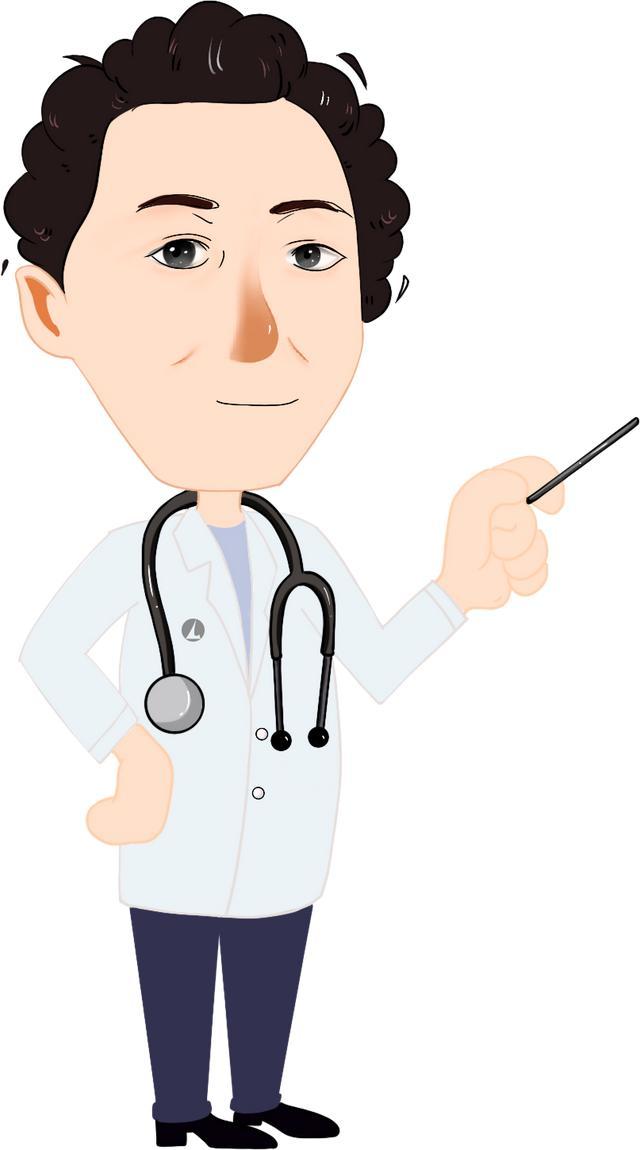
I hope my answer will help you!
If there's anything you don't understand, comment and private message me!
Cerebral infarction itself is a kind of sudden disease, and it can have no symptoms before the onset of the disease. In your case, you need to take oral antihypertensive drugs for a long time, do the secondary prevention of cerebral infarction, take aspirin and other drugs, plus regular medical checkups. If you find any abnormality, you should consult the hospital in time.
Hello, I am glad to answer your question! To be honest, cerebral infarction as a chronic disease, the incidence of more and more high, and even a lot of middle-aged young people, will be inevitably sick, a lot of people have always had a cerebral infarction, why there is no discomfort it feels abnormal? So what are the early symptoms of cerebral infarction? Only to understand clearly, can be prevented in advance, to prevent the problem before it occurs!
Cerebral infarction, meaning blockage of blood vessels in the brain, causes a series of clinical symptoms, which are quite different depending on the location and severity of the blood vessel blockage!
Cerebral infarction is like a tree that has been in a prolonged drought and lacks water and nutrients, there will be varying degrees of withering of branches and leaves. However, in the beginning, it does not affect the growth and development of the tree, but as time passes, it naturally causes water shortage-like changes.
What we call cerebral infarction, in fact, is similar to this, in the early stage of cerebral ischemia, and will not cause serious ischemic manifestations, just have a feeling of tiredness and fatigue, poor sleep quality. However, this condition generally does not attract attention, unless a regular physical examination will have a chance to find out.
As the degree of ischemia aggravates, the symptoms begin to become clearer, step by step, headache and dizziness, dizziness, head is not clear, as if wearing a helmet, blurred vision, memory loss. If you can't pay attention to it, the next step will lead to insufficient blood supply to the heart, panic and chest tightness, drowsiness, numbness of limbs, loss of muscle strength, headache and dizziness symptoms worsening, and even blackout, sudden collapse, transient ischemic attack, lacunar cerebral infarction, cerebral embolism, and so on.
In fact, so many people find out about brain infarcts by accidental tests or go to the hospital because their symptoms have become severe.
There are also some people, especially young people, cerebral infarction is also closely related to cervical spondylosis. If you have cervical spondylosis, you must make adjustments as soon as possible, so as not to cause long-term ischemia of the brain and cerebral infarction.
This question and answer are from the site users, does not represent the position of the site, such as infringement, please contact the administrator to delete.